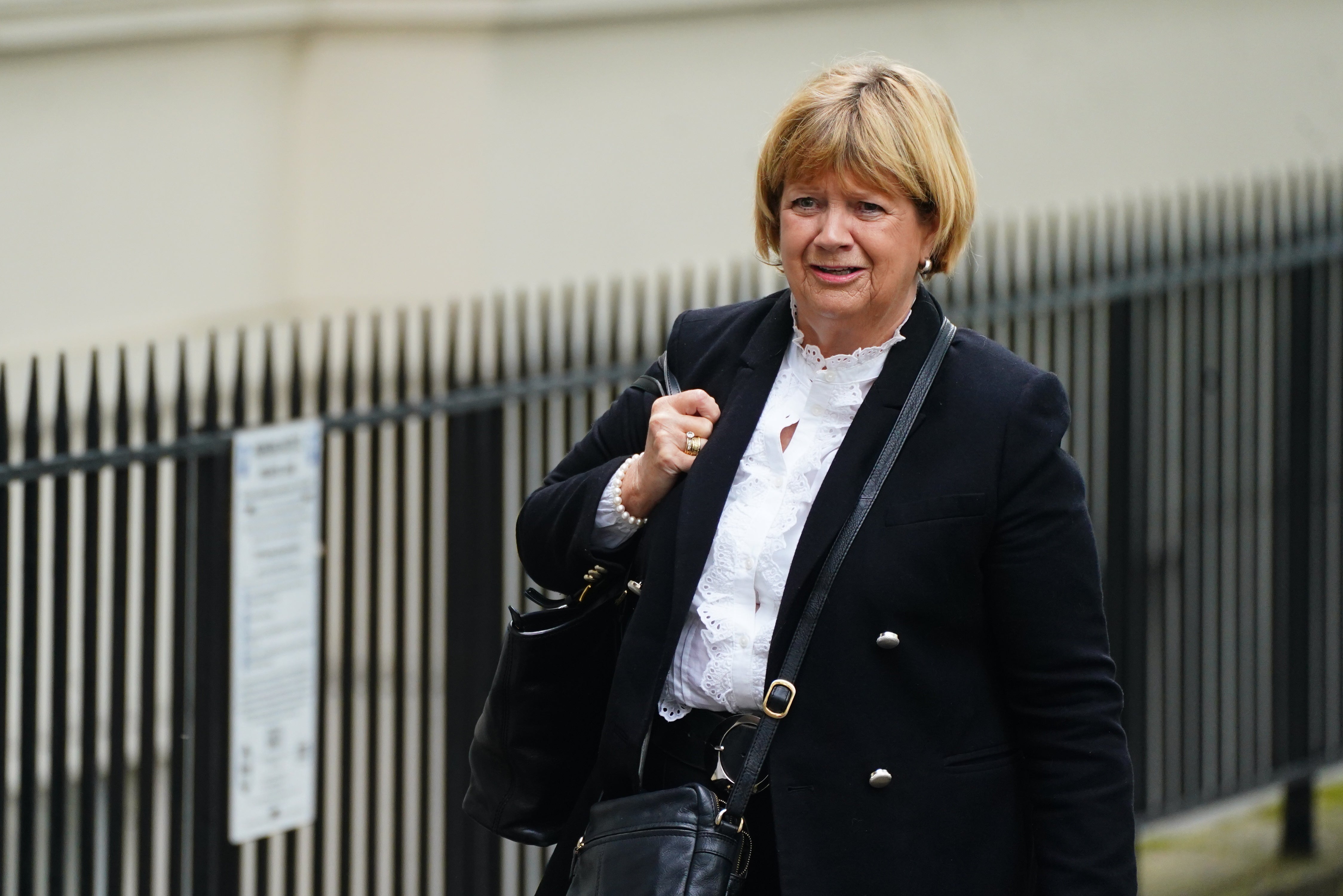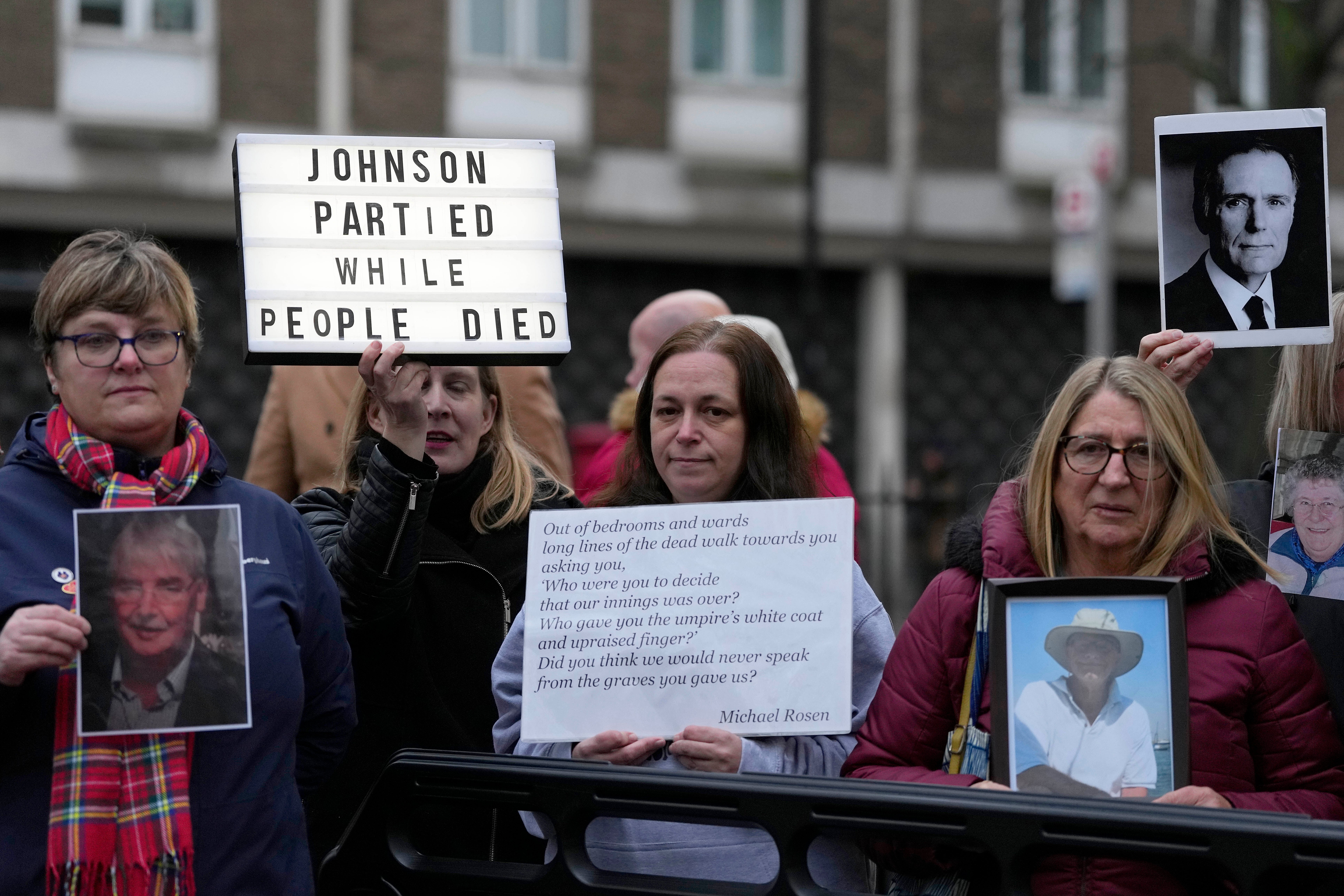Government’s ‘fatal strategic flaws’ in Covid planning led to avoidable deaths and economic pain
Covid-19 public inquiry chair Baroness Hallett has demanded ‘radical reform’ of UK’s pandemic plans

Mass deaths and economic pain during the Covid-19 pandemic were driven by “fatal flaws” in planning by the government, civil servants and scientists who prepared for the “wrong pandemic”, a public inquiry has found.
The UK Covid-19 Inquiry, chaired by Heather Hallett, published its first report on Thursday, focusing on the UK’s pandemic “preparedness and resilience”.
The 217-page report said the government and the civil service “failed” the public as a result of “significant flaws” in preparing for the pandemic, adding that the number of deaths and the economic damage might both have been less extensive had the UK been better prepared.
The report criticised officials for focusing pandemic plans solely on influenza rather than giving consideration to other pathogens, such as coronaviruses.
Government plans prepared prior to the outbreak of Covid described widespread deaths as “inevitable” in a pandemic situation, and, rather than planning to prevent the spread of disease, sought to “manage the casualties and fatalities that would result”.
As a result of these failures, the UK did not have a sufficient test and trace system when Covid-19 arrived, and was only able to implement “untested” lockdown policies, according to the inquiry.
Up to the end of 2023, more than 235,000 deaths involving Covid-19 were recorded in the UK.
According to the report, there was a “damaging absence of focus” on the measures and infrastructure that would be needed to deal with a fast-spreading disease, even though a coronavirus outbreak on a pandemic scale “was foreseeable”, it said.

In her foreword, Baroness Hallett wrote: “It is not a question of ‘if’ another pandemic will strike but ‘when’.
“The evidence is overwhelmingly to the effect that another pandemic – potentially one that is even more transmissible and lethal – is likely to occur in the near to medium future.
“Unless the lessons are learned, and fundamental change is implemented, that effort and cost will have been in vain when it comes to the next pandemic.
“There must be radical reform. Never again can a disease be allowed to lead to so many deaths and so much suffering.”
She warned that there were serious errors on the part of the state, and serious flaws in the UK’s civil emergency systems, adding: “This cannot be allowed to happen again.”
The inquiry also concluded the following:
- Had the UK been better prepared for and more resilient to the pandemic, “some of the financial and human cost may have been avoided”
- The government was warned in 2016 that Britain’s ability to respond to a severe pandemic was not sufficient, but failed to learn the lessons ahead of Covid-19
- The UK was not prepared to deal with mass testing and contact tracing, meaning it had to build these systems from scratch
- “Groupthink” may have affected scientific committees advising the government, restricting the range of views given, as well as ministers, who did not challenge sufficiently the advice they received
- The institutions and structures responsible for emergency planning throughout government were “labyrinthine” in their complexity
- Emergency planning generally failed to account for how the vulnerable would be looked after

Among five major flaws in the UK’s approach was a focus on dealing with the impact of a pandemic disease rather than preventing its spread. As a consequence, a level of illness and death was assumed to be “inevitable”, and no consideration was given to mitigating this or suppressing the disease.
In 2016, the government held an emergency planning operation called Exercise Cygnus, which concluded that the UK’s capacity was “currently not sufficient to cope with the extreme demands of a severe pandemic that will have a nation-wide impact across all sectors”. The report said that no lessons were learnt from this exercise.
Later modules from the inquiry will cover the capacity and resilience of the NHS, but Thursday’s report said that the ability of the healthcare system to respond to a pandemic was constrained by funding.
The chair of the British Medical Association, Professor Philip Banfield, blamed a decade of austerity that he said had ended up costing lives and jobs and causing damage to the economy rather than bringing the promised “efficiency savings”.
He described “catastrophic failings that cost hundreds of thousands of lives”.
Professor Banfield said that the damning first report of the Covid inquiry confirmed that “the state has failed its people”.

The inquiry found no evidence of progress in the new pandemic plans, which were created in December 2023 in an effort to prepare the UK for future outbreaks.
In her recommendations, Baroness Hallett called for a new pandemic strategy to be developed and tested at least every three years with a UK-wide crisis response exercise.
She said the government and political leaders should regularly be held to account for the country’s “systems of preparedness and resilience”.
External experts from outside Whitehall and the government should be brought in to challenge and guard against “the known problem of groupthink”, she said.
A spokesperson for Covid-19 Bereaved Families for Justice UK said Baroness Hallett had not gone far enough “in setting out how we can challenge, address and improve inequalities and capacity of public services as opposed to just understanding the effects of these failures”.
Sir Keir Starmer said: “The government’s first responsibility is to keep the public safe, and as prime minister I am personally committed to each and every family that lost loved ones, and whose lives were changed for ever, that this government will learn the lessons from the inquiry.
“This means ensuring that the UK is prepared for a future pandemic, as well as the broadest range of potential risks facing our country. That is a top priority for this government, and what everyone should rightly expect from a government working in their service.
“I would like to thank Baroness Hallett and her team for their thorough work on this report. The government will carefully consider all of the findings and recommendations of the report in the context of the government’s overall approach to resilience.”






Join our commenting forum
Join thought-provoking conversations, follow other Independent readers and see their replies
Comments